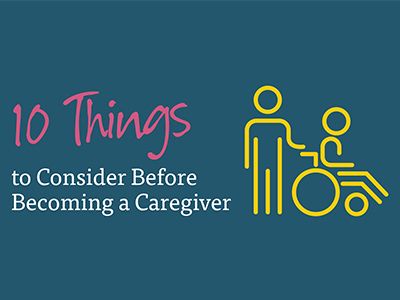In the U.S., millions of people provide unpaid care to another adult. Chances are, you may be one of them at some point – and that means you’ll face critical financial, medical and personal decisions.
Having the appropriate and up-to-date legal documents in order will not only help you know your loved one’s wishes ahead of time but also guide you through difficult choices if something were to happen to him or her. Here are five essential legal documents and legal forms to have in place:
- Financial and medical powers of attorney: With these documents, your loved one designates a person who can make financial and healthcare decisions on his or her behalf in case an accident or health condition leaves him or her unable to make them. Without these documents, it could instigate a court proceeding to set up a formal conservatorship or guardianship.
- HIPAA representative: The Health Insurance Portability and Accountability Act (HIPAA) is a federal law that helps protect the privacy of patients. Doctors, hospitals and insurance companies are required to follow HIPAA rules. This means they can only share medical information with the patient or the patient's personal representative, as dictated by this document.
- Living will form: Also known as an advance directive form, this document details a loved one’s wishes regarding end-of-life care, such as what type of support he or she wants or medical treatment they desire. This document goes into effect in terminal situations when a person is in an end-of-life situation or permanently unconscious, incapable of making his or her own decisions.
- Will: This legal document establishes how your loved one wants his or her assets distributed after they’re gone and names the people he or she wants to care for any surviving underage children. Without a will, these important decisions are made by the state courts, which could result in decisions and distributions that go against his or her wishes.
- A trust: There are many types of trusts — revocable trusts, irrevocable trusts and charitable trusts to name a few. But in a typical arrangement, a basic living trust allows your loved one’s assets — which could range from personal belongings to motor vehicles and real estate property to insurance policies — to avoid probate and to quickly and efficiently pass to the beneficiaries he or she names, without the hassles and expense of probate court.
Everyone should have these essential state planning documents. Depending upon your loved one’s particular situation, you may want to discuss the need for additional estate planning documents with an attorney.
A legal plan can help.
If you’re a caregiver, a legal insurance plan could provide resources like legal document templates, trust documents, guidance and more. For instance, people covered by an ARAG® legal insurance plan can:
- Talk to a network attorney, who can offer legal counsel and review documents.
- Use DIY Docs® to create certain legally valid documents online.
- Caring for someone else can bring challenges, but it can also provide a lot of joy. Having the right legal documents in place will help you avoid bumps in the road so you can focus on what matters.



